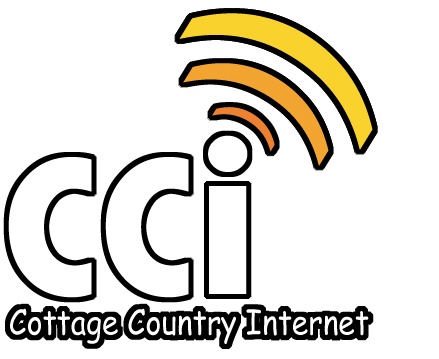What are Peer to Peer applications?
Peer to Peer (P2P) applications allow users to share files around the Internet. Users are both downloading files from many other Internet users at the same time they are uploading files to many users at the same time.
The most interesting and challenging P2P application at this time is BitTorrent.
http://en.wikipedia.org/wiki/BitTorrent_(protocol) for more information.
How does an ISP network work?
Most Internet Service Provider (ISP) networks are designed to share a “big pipe” connection to the Internet among many subscribers. As the pipe is only in use when you click your mouse or hit the Enter key, you are using your connection for only a fraction of the time available. Web browsing, chat, e-mail, file downloads and VoIP phones all fall into this category.
Cottage Country Internet (CCi), like the phone company and most other business that serve the public, doesn’t expect every one of our customers to be using their service at the exact same instant. That way we can take a very expensive Internet pipe and costly rural delivery network and distribute that cost between many subscribers, add a mark-up, and hopefully generate a profit.
Why does CCi care about P2P? Isn’t this just another application?
P2P distorts the traditional business model. A P2P client program installed with default settings usually advertises all content (music, movies, games etc) that you have available in your “common” directory.
And then Internet users from all over the world come and download that content from you. Continuously!! In addition, you are likely to be downloading some music, movies, games yourself. Many people find this proposition so attractive that they download vast amounts of data for weeks on end.
What effect does unrestricted P2P have on my network connection?
The result is that the network becomes saturated with continuous heavy traffic both coming from the Internet, and more importantly continuous heavy traffic uploading out onto the Internet.
The network slows down, the subscriber’s account feel like dial-up, everyone gets mad and we get yelled at. And all the while our bill for the Internet “big pipe” feed is going through the roof.
What can CCi do ensure good network performance for everyone?
The most important step is education. Many people do not understand the impact of P2P on their Internet connection, and a lot of people are not aware that P2P client software is often still running, uploading at full speed out onto the Internet, even when the application appears to be closed.
We are have put up a series of step-by-step tutorials here on how to configure the most popular P2P clients to maximize performance while minimizing impact on the network and other subscriber applications.
Does CCi do Traffic Prioritization/Bandwidth Shaping/block ports or otherwise mess around with my Internet connection?
CCi has invested in a NetEqualizer appliance http://www.netequalizer.com/ to share available Internet bandwidth more fairly. It gently slows down subscribers that have a lot of connections open and that are transferring a lot of data over those connections. This works in both directions, downloads and uploads.
The aim is to provide the fastest possible performance for subscribers who are using “interactive” applications like web browsing, e-mail, chat and IP phones.
Big file transfers are given a lower priority and P2P applications that open many connections across the Internet are given a lower priority yet. In addition, prioritization only happens when the network is particularly busy.
This is a much more reasonable and gentle alternative to blocking ports and other chicanery involved in some ISP bandwidth management strategies. For an example, check out DSLReports http://www.dslreports.com/forum/rogers and the threads on Rogers and “throttling”!
Why are you making a big deal out of P2P suddenly? It’s been around for years!
Up until last year, we had tools that could identify P2P data streams and manage them quite effectively. For example, we limited P2P to non-business hours and set aside a special segment of the “big pipe” specifically for P2P. Unfortunately, there is a bit of an “arms race” between the writers of P2P applications and ISPs. So now encrypted P2P client applications have arrived that are very, very hard to detect using normal methods. As a result, a very few users (less than 1% of our subscriber base) contributed to a significant increase in network load over the past couple years.
I want to run P2P applications so I can download stuff, how can I do that without being penalized?
Set your P2P client to 10 simultaneous connections. Set your upload rate to 10KB/s or lower. Set your download data rate to 30KB/s or lower. Set your scheduler to automatically run your downloads/uploads in off-peak times between 11pm and 7am.
What happens if I inadvertently do a lot of P2P downloads?
Well, you’re going to find your Internet connection pretty slow for a while. We manage our network to provide the best service for the most people, so when we find someone “hogging” the network they generally go in the penalty box until we have can have a friendly chat. You can still use your connection, but it’s a reminder of what dial-up speeds feel like!
What happens if I’m a repeat offender and really don’t want to play nice?
You will be looking for a new Broadband provider!!

